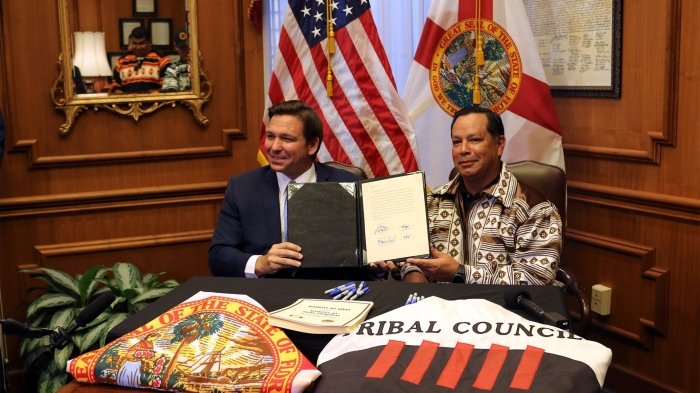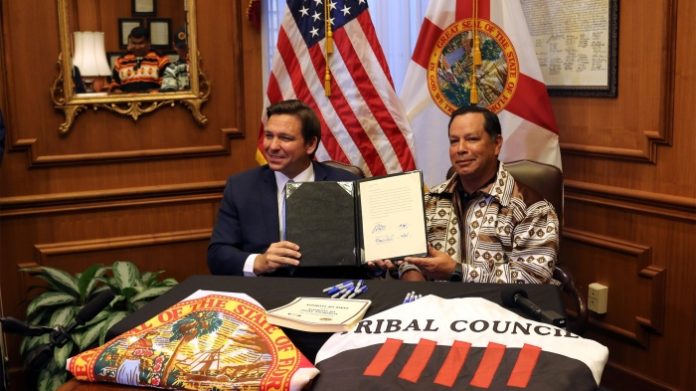
A
second federal lawsuit has been filed in an effort to prevent sports betting from launching in Florida. Developer Armando Codina and auto retailer Norman Braman, two of Miami’s most outspoken critics of gambling, are behind the legal action, presented on Monday in the District of Columbia.
The lawsuit, filed against U.S. Secretary of the Interior Deb Haaland, alleges that the federal government “improperly allowed the State of Florida to circumvent” the state Constitution when it approved the gaming compact between the state and the Seminole Tribe, illegally authorizing off-reservation sports wagering, reports Tampa Bay Times.
A second argument raised by the suit is that Gov. Ron DeSantis and the Florida Legislature violated federal Indian gaming law and the federal Wire Act by authorizing gambling outside of Indian lands and by “allowing the use of the Internet or interstate payment transmissions where sports betting is illegal.”
Lastly, the legal action asks the court to block the expanded compact on claims that it violates the federal Indian Gaming Regulatory Act by allowing the tribal nation to enter into partnerships with parimutuels to handle their sportsbooks. This, says the suits, unlawfully seeks to “enrich non-tribal interests” instead of protecting “the sovereign rights and interests of Native American Tribes and Peoples.”
The sports wagering deal signed by DeSantis, and approved by the state legislature, says anyone in Florida over age 21 can start placing and collecting online wagers on sporting events via internet or web applications from anywhere in Florida, starting on October 15.
It also allows sports bets at six of the tribe’s reservations, and for existing racetracks and jai-alai frontons to develop their own mobile apps and to conduct off-reservation sports bets if chosen by the Seminoles tribe as partners.
Codina and Braman find it alarming that the Seminole Tribe waives its right to object to any new casino license outside an 18-mile boundary of its Hard Rock Casino near Hollywood under a provision in the compact. Both the Fontainebleau hotel and resort in Miami Beach and Trump’s National Doral Miami golf resort have said they would like to transfer a gambling license from an existing pari-mutuel to their properties.
“It doesn’t take a rocket scientist to see how this movie is ending,” said Codina, according to the previously cited news source. “We don’t want to wait to see the white of their eyes, so this is our first step.”
This new lawsuit isn’t the only one seeking to stop sports betting from launching. Last week, Magic City Casino and Bonita Springs Poker Room, both owned by West Flagler, also filed a suit to block wagering.
It was alleged that offering statewide online sports betting through servers on tribal lands cannot be considered equivalent to betting on tribal lands, thus a violation of state constitution. West Flagler also considers that, by excluding other businesses and giving the Seminole Tribe the sole right to sports betting, the government is discriminating in favor of one specific tribe.
“We are making the same arguments, but we have a different agenda,” said Eugene Stearns, lawyer for Codina and Braman.
The federal court has scheduled a November 5 hearing date to hear oral arguments on the West Flagler motion for summary judgment with the goal of blocking the launch of online sports betting in the state.
Original article: https://www.yogonet.com/international//noticias/2021/09/28/59498-florida-sports-betting-faces-second-federal-lawsuit-in-effort-to-block-tribal-market-launch















